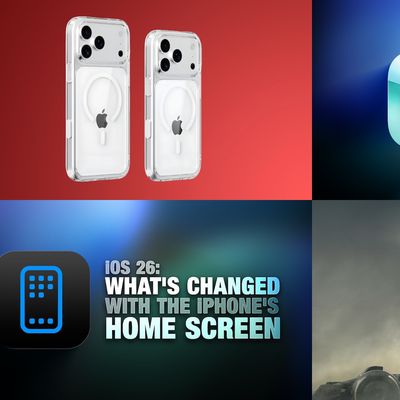Logitech has worked on a "forever mouse" that could come with a subscription fee for regular software updates, according to Logitech CEO Hanneke Faber.

There are no plans to release such a product at the current time, but Faber explained the concept during a recent appearance on The Verge's Decoder podcast with Nilay Patel. Apparently, the Logitech innovation center team in Ireland showed Faber a "forever mouse" that is designed to be used for many years. It's a "little heavier" than a standard mouse, and it has "great software and services" that get constantly updated.
The other day, in Ireland, in our innovation center there, one of our team members showed me a forever mouse with the comparison to a watch. This is a nice watch, not a super expensive watch, but I'm not planning to throw that watch away ever. So why would I be throwing my mouse or my keyboard away if it's a fantastic-quality, well-designed, software-enabled mouse. The forever mouse is one of the things that we'd like to get to.
Logitech is aiming to increase the longevity of its products through more premium devices that can be updated over time. Of course, as a mouse is a one-time purchase, continual software updates would need to be funded through some kind of service model.
Patel asked Faber if she could "envision a subscription mouse," and she responded "possibly." Faber went on to explain that customers would "never have to worry about [their mice] again," which is similar to Logitech's video conferencing services.
When asked whether Logitech had some other model for monetization than subscription fees or advertising, Faber said no, and that she was "intrigued" by a forever mouse that has an accompanying business model around software updates.
We're continuing to recycle and refurbish products. All of that is good. But that said, I am intrigued by a forever mouse or forever video conferencing solution that you just update with software and create a business model around that.
Later in the interview, Faber said that there could also be a model where customers trade in a mouse for a newer version, similar to something like the iPhone Upgrade Program.
The forever mouse, and the forever mouse could be the mouse that you keep and we just send you software updates, but it could also be the mouse that you turn in at Best Buy and we get it back or Best Buy takes it back and refurbs and resells it, which is another business model. We're starting to do that but not yet at the scale that we need to.
Faber pointed out that customers spend around $26 on a mouse or keyboard on average, which is "really so low" for "stuff you use every day." She said there's "so much room to create more value in that space as we make people more productive."



















